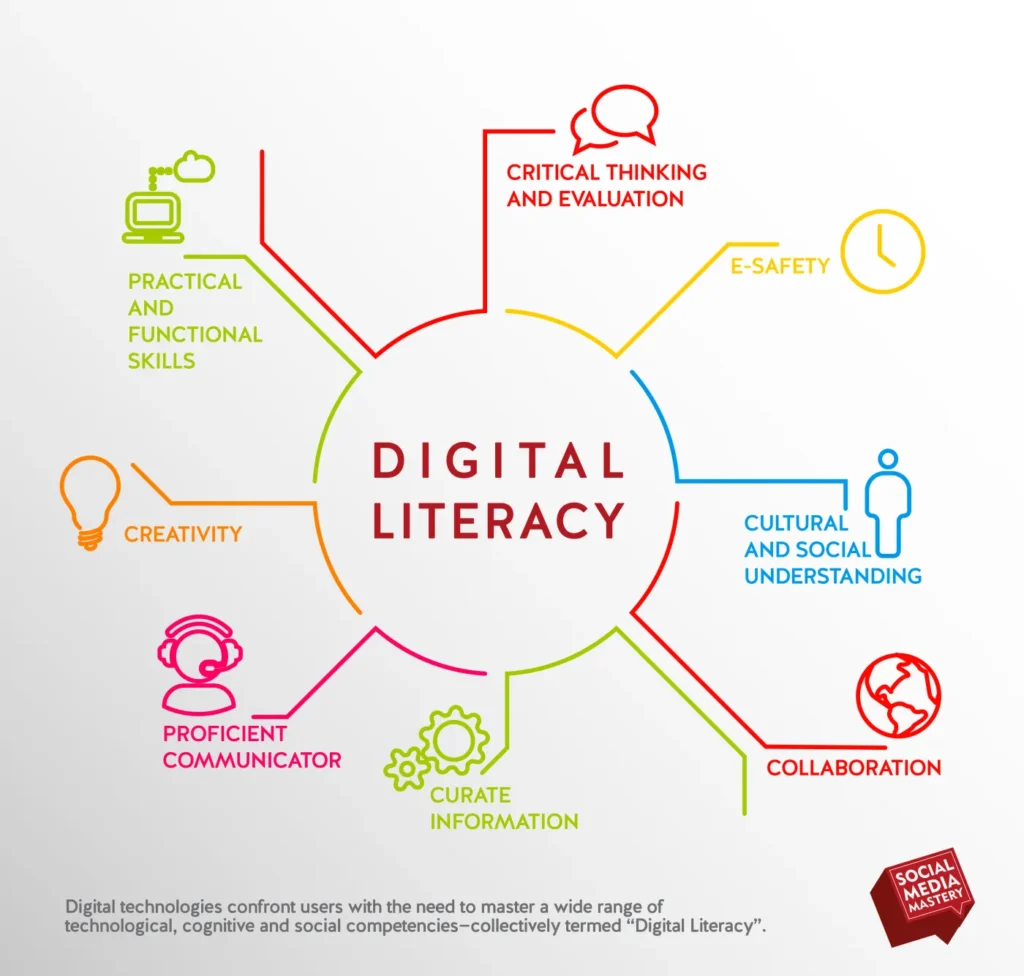Introduction:
The 21st century is characterized by rapid advances in technology, bringing major changes to the way we live, work and interact. Therefore, digital literacy (meaning the ability to find, evaluate, use and create information using digital technology) has gained importance. Digital literacy provides people with the skills and understanding needed to navigate the digital environment, enabling them to make the most of the digital world.
In a world evolving at the speed of the internet, digital literacy is not just a desirable skill. It has become necessary. Here we take a closer look at why digital literacy is such an important part of the fabric of our lives today.
Easily access and share information:
The Internet is an open data economy; It’s an open source work. All the information you need is at your fingertips. Learning how to effectively access, analyze, manage and share this valuable information is an important aspect of digital literacy. Necessary skills, such as knowing how to best use search engines, identifying reliable sources, or monitoring copyrighted content, enable people to use the full potential of the digital world.
Encouraging community participation:
In the 21st century, public and political processes are increasingly moving online. Whether voting in a digital election, signing an online petition, or simply knowing their digital rights, digital literacy allows citizens to participate in the digital transformation of society. It also improves thinking, enables people to distinguish fact from fiction, and reduces the spread and impact of misinformation.
Real estate development:
Today’s business environment is very beneficial for digital literacy. From basic tasks like sending emails and creating newsletters to complex tasks like data analysis or digital marketing, the number of jobs that require digital skills is large and growing. Although the digitalization of liability may differ from business to business, the general approach to the development of digital resources is clear.
Promoting lifelong learning:
Online courses, webinars, MOOCs (Massive Open Online Courses), podcasts, rich digital resources for all kinds of learning. The world is turning into a classroom with digital information! As change continues to accelerate, the need for continuing education cannot be ignored. Therefore, digital literacy not only contributes to education, but also supports lifelong learning.
Communication and collaboration:
The emergence of digital communication such as email, instant messaging, video conferencing and social media platforms has changed the way personal and professional communication occurs. Digital literacy enables people to participate in this connected global community, fostering effective collaboration and exchange of ideas across geographical and cultural boundaries.
Security:
Cyber Digital literacy includes understanding the importance of digital hygiene – setting strong passwords, using network security measures, keeping software up to date, and recognizing online vulnerabilities – all of which are essential to security in cyberspace. It is important.
Conclusion:
The conclusion is that in the age of digital information and communication, a good understanding of technology and the Internet is essential. Digital literacy goes beyond the simple ability to use digital tools for deeper understanding, critical thinking, and fair use. Developing digital literacy skills is an important step towards a united, informed and empowered society ready to thrive in the 21st century.

